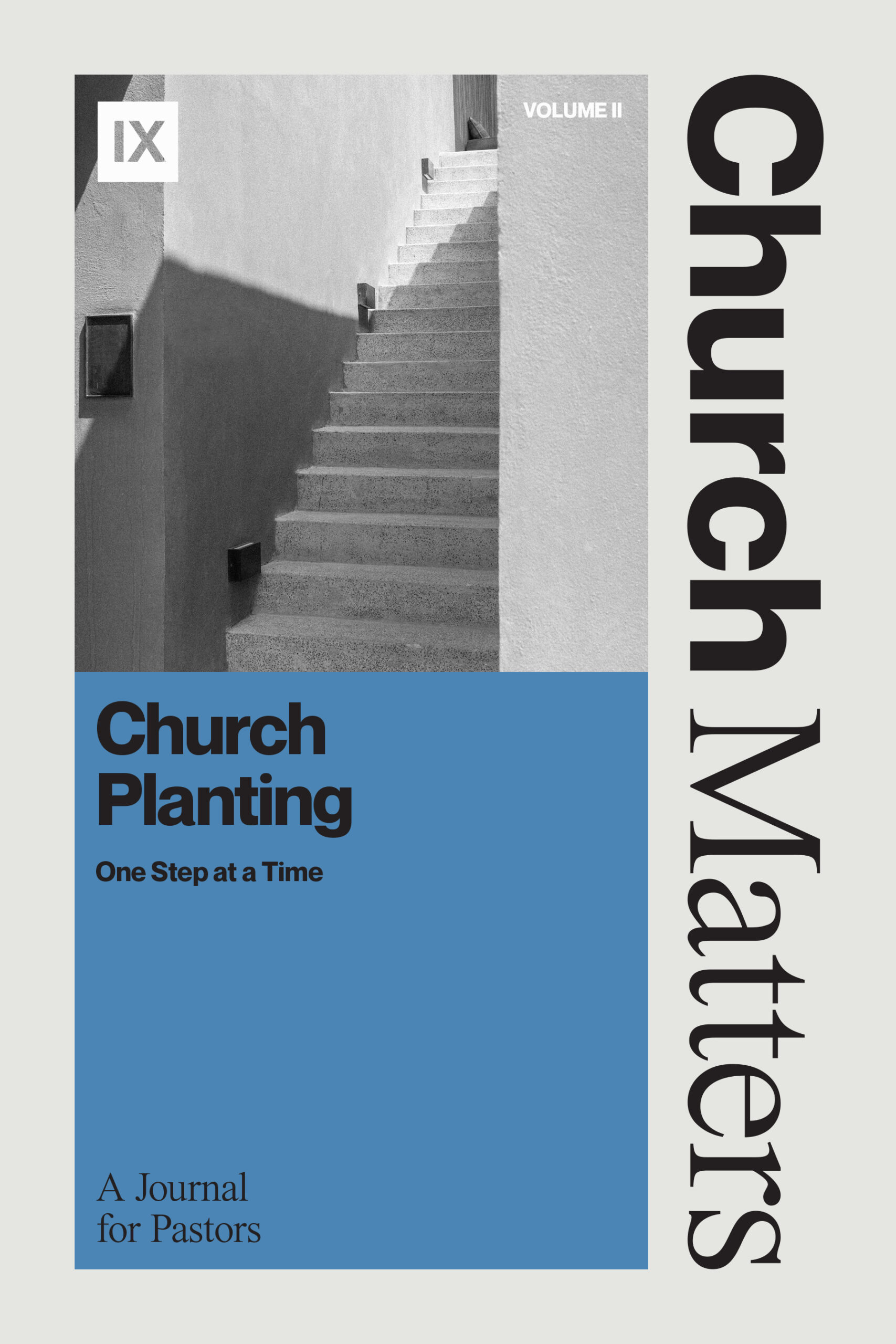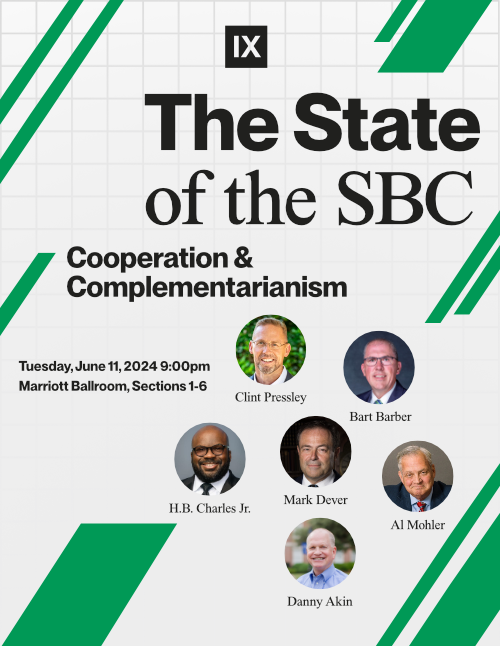Church Planting across Ethnic Lines
Fifteen years ago, my wife and I (both of us white) moved into a neighborhood where we were an ethnic minority. We wanted to plant a church. Over the years, our idealism has been crushed; we’ve hit rock bottom, experienced a rebirth of vision, and have slowly made progress. God has been incredibly kind as he has formed a diverse church in our neighborhood. The immediate context is mostly African-American, yet we’re three blocks from a historically white neighborhood. Our church is roughly half black, half white, with a very small percentage of Asian and Latino.
BIBLICAL BASIS
First and foremost: it’s biblical and right to do cross-cultural ministry. God does burden individuals from one culture to share the gospel and invest in another cultural setting. God burdened my Korean-American friend, Dan, to plant a church in a historically poor white neighborhood. God burdened my African-American friend, Marty, who grew up in the inner-city, to plant a church in the suburbs. God called a man named Paul, who wanted to work among his own people, to leave and take the gospel to the Gentiles. When God burdens a preacher for a people group, a neighborhood, or a block, it’s right for that preacher to go and become all things to all people so that he might save some.
Reflecting on his own gospel work, the Apostle Paul wrote:
For though I am free from all, I have made myself a servant to all, that I might win more of them. To the Jews I became as a Jew, in order to win Jews. To those under the law I became as one under the law (though not being myself under the law) that I might win those under the law. To those outside the law I became as one outside the law (not being outside the law of God but under the law of Christ) that I might win those outside the law. To the weak I became weak, that I might win the weak. I have become all things to all people, that by all means I might save some. I do it all for the sake of the gospel, that I may share with them in its blessings. (1 Cor. 9:19–23)
But you ask: “Won’t someone from the home context make for a better witness?”
Not necessarily. Don’t misunderstand: God calls all people to work to reach their fellows, but the gospel is “the power of God for salvation to everyone who believes” (Rom. 1:16). Additionally, the Apostle writes, “When I came to you, I did not come with eloquence or human wisdom as I proclaimed to you the testimony about God. For I resolved to know nothing while I was with you except Jesus Christ and him crucified” (1 Cor. 2:1–2).
What if God called Dan to the historically white neighborhood, Marty to the suburban neighborhood, and myself to an African-American neighborhood so that “faith might not rest in the wisdom of men but in the power of God”? God may place the most unlikely vessel into a neighborhood so the only explanation for fruit is God’s supernatural work. Man cannot do this; only God can.
MOTIVES
However, fueled by biblical support, it’s possible to rush into cross-cultural work without examining our extra-biblical motives. During my first few years, I was often questioned: “Why do you think you should plant a church here?” This initially took me by surprise as I had a lot to learn. But over time I realized that the question was a good one because it came from a place that was intimately familiar with the history of white superiority.
If you’re eager to do cross-cultural ministry, here are a few questions you should be willing to ask yourself:
1. Why am I here? Are you here because of guilt, because you think you can save the day, or because you implicitly think your way of doing life and church is superior?”
2. Am I willing to submit to someone of a different ethnicity? Do you have a mentor who’s familiar with this context? If not, why not? Are you willing to find one? What might they say about your decision to plant a church in your intended location?
3. Is there a need for a new church? Are there other indigenous gospel works that you might consider joining? Should you submit to another pastor in this context? Are the other churches here actually unhealthy or are they merely operating from a different set of cultural values?
Essentially, you must ask yourself, “Have I moved to this context unaware of the racial, ethnic, or cultural history and dynamics of the country and the community?”
LAND MINES
With those words of encouragement and examination, please allow me also to point out a few potential land mines:
Land Mine #1: Trying to Be Someone You’re Not
There’s absolutely nothing worse than a white man who changes his dialect when talking to an African American. Marty tells me of his friend of twenty years who still tries to “talk jive” to him. “Becoming all things” doesn’t mean you forget your ethnic background and attempt to become another ethnicity. That’s just annoying; it’s also condescending. Remember your background and recognize any tensions your presence may arouse.
Land Mine #2: Imposing Your Own Culture on Other Ethnicities
You do have a culture. Your preaching style, liturgy, and hymns—including the way you sing them—are culturally influenced. Your cultural background has shaped your discipleship and ministry preferences. Your values, politics, and the way you talk about these things, are peppered with certain cultural standards.
Don’t be like Peter in Galatians 2:11–14. Due to his fear and respect of leaders from his own culture, Peter broke table fellowship with the Gentiles over what he may have believed were divinely ordained (old covenant) legal issues. But with the coming of the new covenant and the passing of the division between Jew and Gentile (see Eph. 2:13), those differences now added up to nothing more than cultural and ethnic distinctions. As such, Peter was in effect requiring those who were ethnically different than him to assimilate to his ethnicity for the sake of fellowship. Paul responded to such requirements by remarking that Peter was “not acting in line with the truth of the gospel.” The gospel doesn’t allow anyone to insist that their cultural or ethnic norms function as the standard for discipleship.
Land Mine #3: Despising Those Who Do Look Like You
An unexpected temptation for many who are working in a cross-cultural context is to subtly disdain members of one’s own ethnicity when joining one’s church. A Korean-American pastor desiring to plant a “non-Korean church” confessed that it took him a while to accept the fact that he still attracts other Korean-Americans to his church. People of your own hue will be attracted to your church because of you, and you must accept that happily. Don’t make cross-cultural work an idol.
Land Mine #4: Drifting Toward Familiar Spaces
At the same time, there’s another unexpected temptation, which is the draw toward familiarity. I’ve known cross-cultural ministers who have moved into inner city neighborhoods, never once shopping in their corner stores, hanging in their streets, or eating at their food spots. Instead, they socialize exclusively in hipster neighborhoods with coffee shops.
In short, it’s all too easy to enter a particular community with the heart for a particular demographic, and then spend all of your time with people outside the context.
It’s been said that the biggest missionary challenge is to remain a missionary once on the field. You will be drawn to socialize, mingle, and connect with those who look like you and are from the same background as you. This is natural. And yet, in order to remain a missionary, you must fight against these natural tendencies and intentionally develop cross-cultural friendships. You must learn to appreciate the values, pleasures, rhythms, and routines of your new neighbors. Sacrifice comfort and learn a new culture. Become all things to all people so that, by God’s grace, you might win some.
CONCLUSION
I’m glad you want to serve a context different than your home culture. This demonstrates that God has torn down walls of ethnic division in your own life. As you carefully move forward in humility and with wisdom, be encouraged that God often uses cross-cultural work for his own glory.









